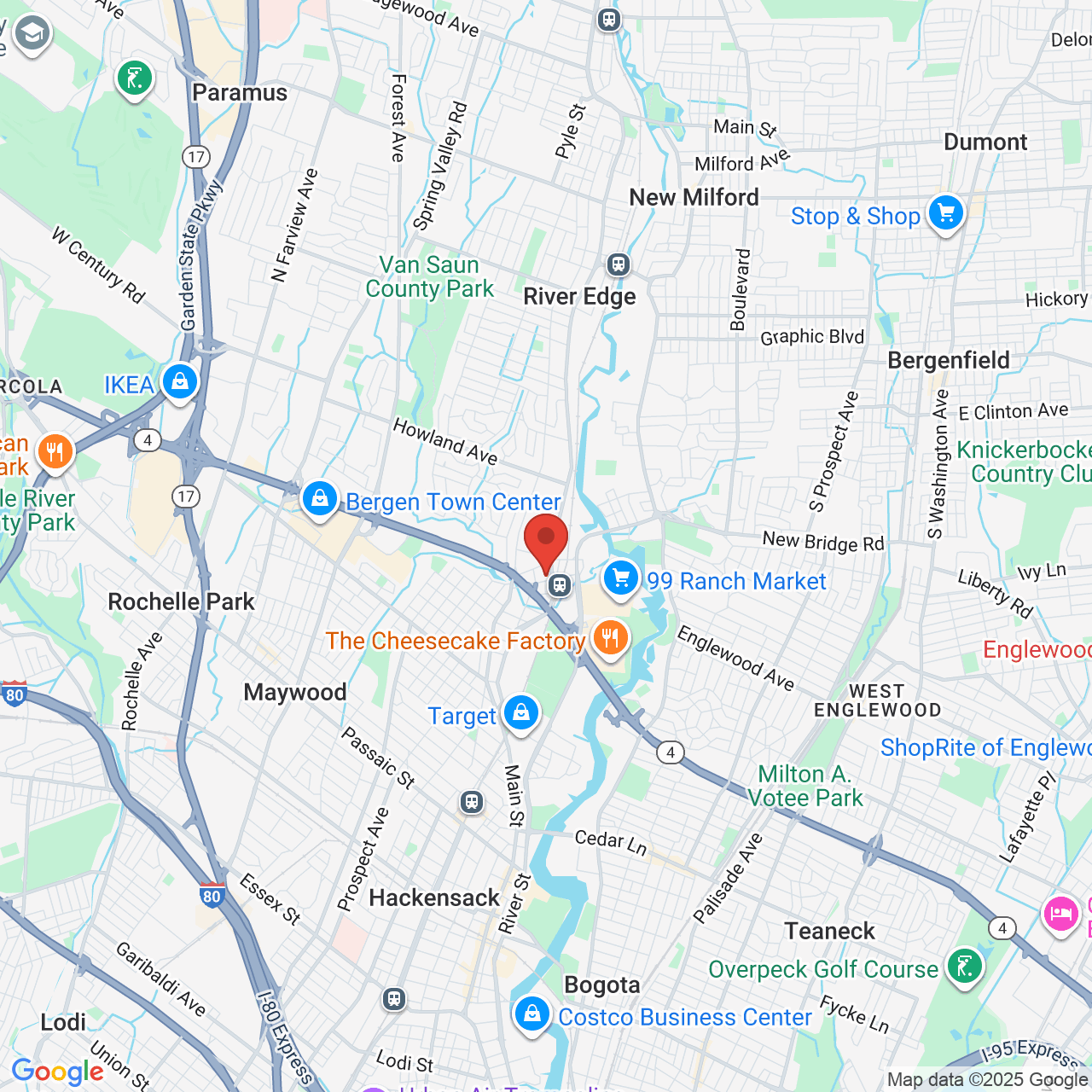Complete Your Smile with Dental Bridges
 When a tooth falls out or needs to be extracted, the oral health of a patient can be seriously impacted. Patients may experience bone deterioration, periodontal disease, and bite problems as the remaining teeth shift around in the mouth. Dr. Stephen J. Malki offers dental bridges at his New Jersey practice as a long-lasting solution to tooth loss, effectively reducing the chances of diminished oral health.
When a tooth falls out or needs to be extracted, the oral health of a patient can be seriously impacted. Patients may experience bone deterioration, periodontal disease, and bite problems as the remaining teeth shift around in the mouth. Dr. Stephen J. Malki offers dental bridges at his New Jersey practice as a long-lasting solution to tooth loss, effectively reducing the chances of diminished oral health.
If you have experienced tooth loss and are interested in learning more about how dental bridges can help, please contact Malki Dental today.
What are Dental Bridges?
Dental bridges close the gap left by a tooth that has fallen out or been extracted. Bridges are composed of artificial teeth, also known as pontics, usually supported on both sides by two dental crowns. Because there are several types of dental bridges, Dr. Malki works with patients to determine which bridge best suits their needs. When placed, dental bridges alleviate the pain and discomfort associated with tooth loss, and create a uniform set of teeth.
Fill Gaps in Your Smile
Types of Traditional Dental Bridges
While all dental bridges serve the same purpose, the type of bridge that a patient has placed will depend on the location of the missing tooth as well as the strength of the surrounding teeth. Dr. Malki will discuss the best options for treatment with each patient.
Fixed Bridges
These are the most common bridges used to replace missing teeth. During the placement of fixed bridges, Dr. Malki will prep the teeth on either side of the gap, and fit them with porcelain crowns. These crowns provide stability for the synthetic tooth, restoring strength in the patient’s teeth.
Resin-bonded Bridges
Resin-bonded bridges are ideal for patients who have healthy teeth on either side of the space where a tooth was lost. Instead of using crowns to anchor the pontic, Dr. Malki will bond the false tooth into place using metal bands and special dental cement. The placement of resin-bonded bridges requires less tooth preparation than other bridgework.
Benefits of Traditional Bridges
The most important benefit of dental bridges is that they reduce the risk of further oral health complications. Left untreated, gaps between the teeth can lead to gum disease, a shift in the remaining teeth, and jaw misalignment. Patients who have dental bridges placed are also able to chew, talk, and care for their teeth more comfortably. Finally, dental bridges are aesthetically pleasing. Not only do they fill in obvious gaps, they blend in seamlessly with the surrounding teeth. Porcelain, which is the main component of most dental bridges and crowns, effectively mimics the look of natural teeth. Therefore, dental bridges allow Dr. Malki to create a uniform set of teeth.

Implant-Supported Bridges
Implant-supported bridges are held in place by dental implants rather than adjacent teeth. Because implant-supported bridges do not require major alterations to healthy surrounding teeth, they are the preferred method of tooth replacement for most patients.
Advantages of Implant-Supported Bridges
Implant-supported bridges offer the patient a number of unique advantages over traditional bridges, including:
- Providing decades of support for your smile
- Not needing to resize adjacent teeth to support the bridge
- Improved confidence while chewing, talking, and laughing because your prosthetic is firmly in place
- An easy at-home hygiene routine that is like just like caring for natural teeth
- Stopping jawbone loss
- Preventing puckered lips, concave cheeks, and other signs of tooth loss
Since the implants are backed with the strength of your jawbone, they provide an unmatched level of reliability and strength to the attached bridge. Additionally, the osseointegrated implant post essentially performs the function of a tooth root. In doing so, the implant stimulates the jawbone and halts the bone loss and structural changes that occur immediately after you lose a tooth.
Receiving Your Implant-Supported Bridge
There are several steps involved in providing an implant-supported bridge:
Planning
At your consultation, Dr. Malki will perform a thorough oral health evaluation and take detailed images of your smile. Using this information, he will determine if implants are the right treatment to meet your oral health needs. If so, he will also plan the most advantageous area for implant placement. Additionally, patients with weak jawbone may undergo a bone graft or sinus lift with Dr. Malki. These procedures augment jawbone tissue and improve your eligibility for implant-supported bridges.
Implant Placement
On the day of your implant surgery, you will receive a local anesthetic. If you are nervous about your procedure, we can also work with an anesthesiologist to perform deeper level sedation. After you are prepped, Dr. Malki will make small incisions at the gum line and place the implants in the jawbone. He will then suture your gums back together and provide a temporary bridge to be worn until your implants are fully healed.
Healing & Restoration
Over the next few months, your implants will merge with the surrounding bone tissue in a process called osseointegration. When osseointegration is complete four to six months later, you will come back to our office to receive your permanent bridge. At this time, Dr. Malki will ensure that your restoration matches the shade and shape of your surrounding teeth, and complements your bite patterns. He will then affix the permanent bridge to the implant posts.
Learn More about Dental Bridges
If you are interested in learning more about the benefits of dental bridges, contact our New Jersey office to schedule a consultation. Malki Dental happily serves patients throughout Bergen County.

